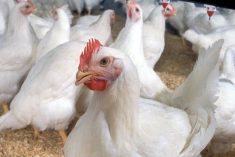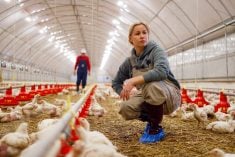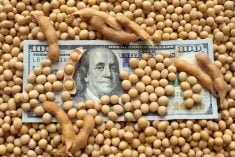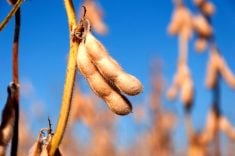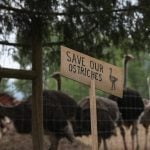Sao Paulo | Reuters — Multinational grains traders operating in Brazil are seeking to weaken an agreement that forbids buying soybeans from farms on deforested land in the Amazon rainforest, environmental advocates involved in the discussions said on Wednesday.
Soy traders including ADM, Cargill, Cofco and Bunge signed up for the “Amazon soy moratorium” in the mid-2000s, pledging to stop buying soy from farms in the Brazilian rainforest that were deforested from 2008 onward.
Scientists and conservationists have praised the voluntary moratorium for slowing deforestation in the Amazon, the world’s largest rainforest and a bulwark against climate change because its trees absorb vast amounts of climate-warming greenhouse gas.
Read Also

More Canadian companies at Agritechnica 2025
A record number of Canadian agriculture machinery and tech companies are at Agritechnica 2025, with exporters being more aggresive looking for new markets.
The moratorium is enforced by a working group including representatives of trading companies, environmental advocacy groups and the government.
In recent meetings of that group, grains traders have proposed changing the moratorium rules, Carolina Pasquali, executive director of Greenpeace Brasil, said in an interview.
The current agreement bars soy purchases from a whole farm if it includes areas deforested since 2008. But traders now propose a distinction between individual soy fields, letting growers export from one part of a farm while planting soy on newly deforested areas nearby, Pasquali said.
“It makes the moratorium lose its meaning,” she said. “Farmers failing to comply (with the end to deforestation) would still be able sell their soy.”
Abiove, which represents those trading firms and all major soy purchasers in Brazil, said it was holding discussions on the moratorium, but did not confirm details of any proposal.
Abiove members ADM, Cargill, Cofco, Bunge and Louis Dreyfus referred questions to the association.
The Guardian newspaper reported earlier that Abiove members planned to vote next week on whether to push for the proposed moratorium changes.
Even if Abiove members were to back such a move, environmentalist groups and government signatories to the agreement would need to agree to the change, Pasquali said.
Other nonprofits also told Reuters they oppose the change.
Under Brazil’s forestry code, landowners in the Amazon can legally clear up to 20 per cent of their property. However, a surge in deforestation in the early 2000s sparked calls for action by the private sector, which feared a wider boycott of soy exports.
Brazil is the world’s largest producer and exporter of soy. Environmentalists argue weakening the moratorium could open up a huge amount of the Amazon region to soy planting.
“It is very much an enormous amount of land that was deforested after 2008 in the Amazon,” said Jean-François Timmers, an anti-deforestation campaigner with the World Wide Fund for Nature. “We’re talking about millions of hectares.”
In its statement to Reuters, Abiove noted that Brazilian state lawmakers are pushing legislation “that significantly harm the signatories of the Soy Moratorium.”
The state of Mato Grosso passed a law stripping tax breaks from firms that adhere to the moratorium.
Abiove said it defends the soy moratorium while “striving to balance the demands of both farmers and consumers, including updates to the current model to ensure its effectiveness.”
— Reporting by Ana Mano, Roberto Samora and Jake Spring





